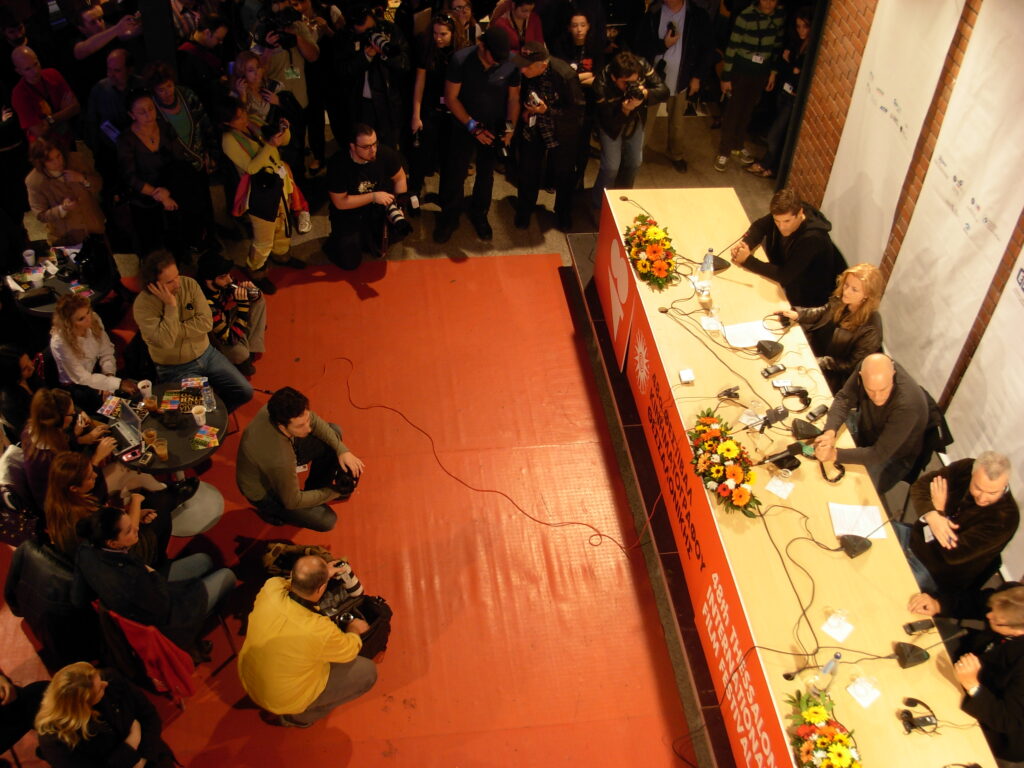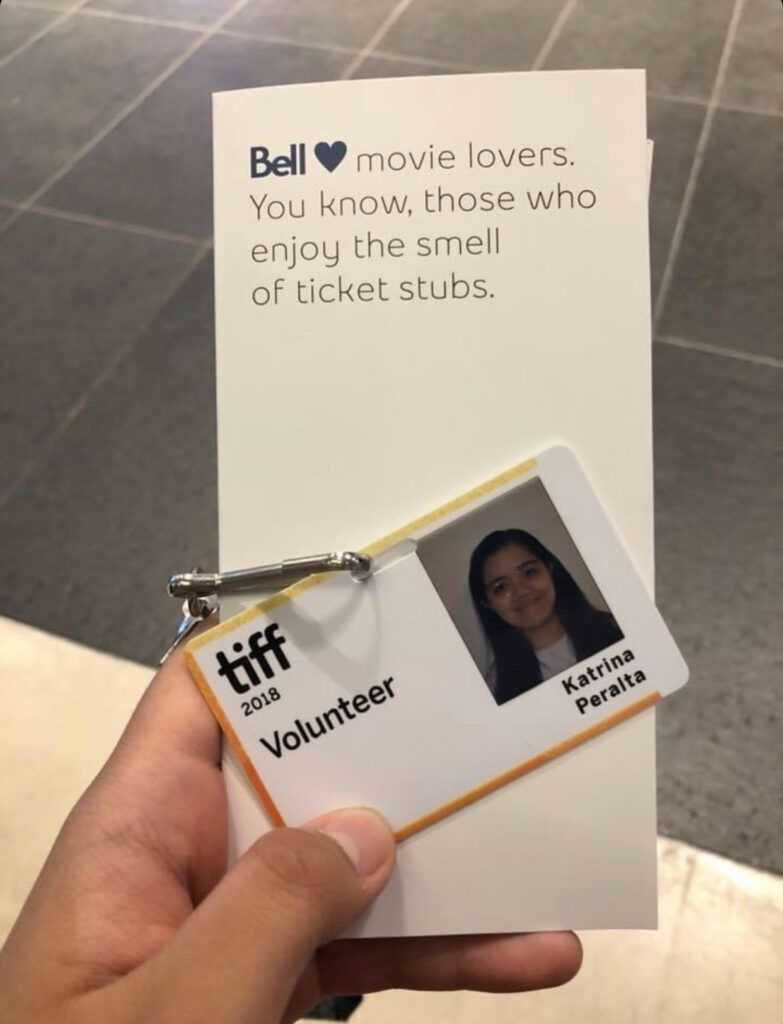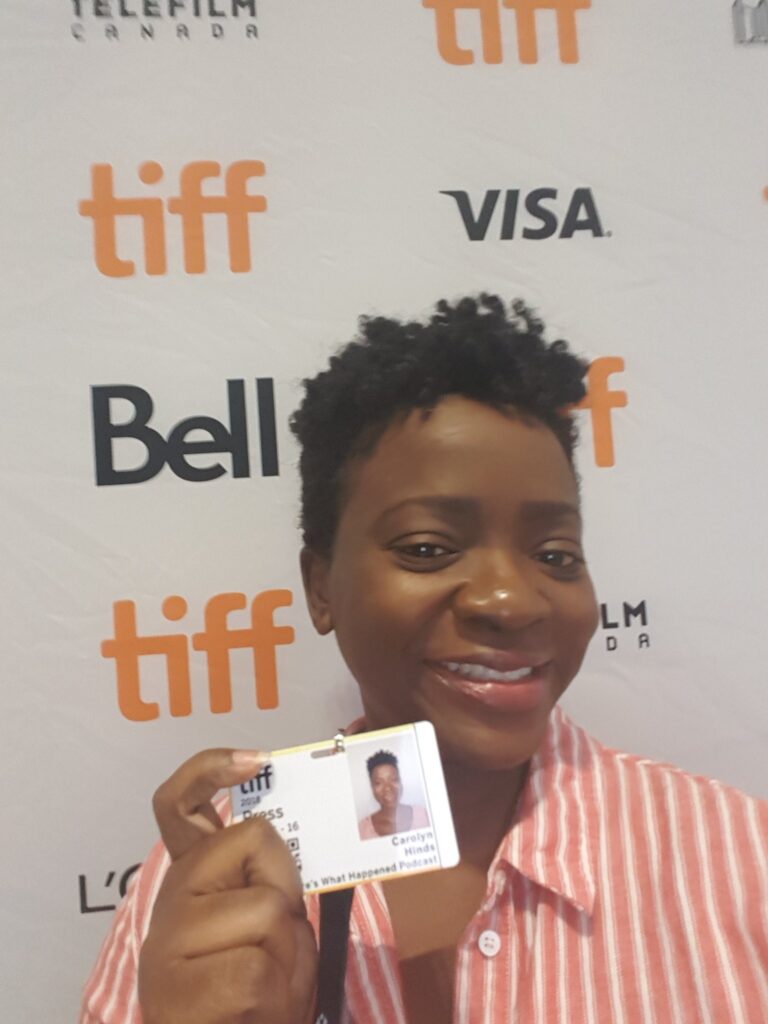By Kadija Osman
Uncertainty. That’s what Carolyn Hinds felt about applying for press accreditation at the Toronto International Film Festival in 2018. Earlier that year, she’d been in Los Angeles for the famed San Diego Comic-Con as a freelance film critic.
“Should I do it?” she asked. “Should I really apply?” Hinds was sitting with a couple of her friends while she deliberated.
“I think you should go for it,” her friend Nancy told her, and so she did. Within a week she was accepted.“Getting a press pass definitely validated me and my podcast co-host, LaNeysha,” Hinds says now. “It helped us personally realize that we can be taken seriously and that this isn’t ‘just for fun’ but we have serious film criticism and commentary to add.”
Hinds has since been invited back three times. “I think I am one of the few Black female podcasters who do attend North American film festivals and what we have is unique because there aren’t many podcasts that get to go to film festivals as members of the press.”
Hinds started So Here’s What Happened with her friend and fellow entertainment critic LeNeysha Campbell in 2018 not thinking the show would go anywhere. It wasn’t until she graduated with a paralegal diploma that she decided she wanted to pursue a career in film reporting instead.
Less than two weeks after the cap-and-gown ceremony, she told her sister, Charlene, of her future plans.
“Yeah, I think I’m gonna do this film criticism thing full-time now,” she said.
Charlene was a bit shocked: “Wait, are you being serious?”
Hinds smiled back. “Yeah, I’m gonna ‘follow my bliss,’ as they say.”
It was a leap of faith on Hinds’ part but the decision was well-timed as the industry is slowly diversifying the playing field.
In 2018, the Toronto International Film Festival started the Media Inclusive Initiative, aimed to increase diverse and marginalized voices by 20 per cent. It prioritizes first-time reporters, especially if they identify as Black, Indigenous, or as a person of colour, as well as members of the LGBTQ+ community and reporters who are non-binary or have a disability.

Press conference at a film festival in 2007 (Tom Tziros/Flickr)
TIFF 2020 saw an unprecedented number of journalists and reporters cut from the invite list as it went from 1,600 to 500. The reason behind the drastic drop despite the festival going digital was piracy, according to the official TIFF Twitter account.
“While you might assume that a digital Festival means unlimited access, security concerns from filmmakers and film companies meant we had to greatly reduce the number of journalists who can view Festival films online,” they wrote.
The shrinking number of accredited media outlets might easily have been used as an excuse to postpone inclusive initiatives. Luckily, this wasn’t the case.
Enter Kat Peralta, a queer 20-year-old woman of colour who was accepted for the first time as a member of the press for TIFF 2020. Peralta’s love for films is strong and she is not afraid to show it — her lilac-coloured walls are decorated with movie memorabilia and posters, most notably from Barry Jenkin’s Moonlight and Céline Sciamma’s Portrait of a Lady on Fire.
The soft hum of a ceiling fan accompanies her stories as she indulges in memories of her time at the 46th Toronto International Film Festival. Despite the fact that we’re separated by screens when I reach her via video call in February, her energy and passion radiate just the same.
“I love watching new movies and getting around the hype of it,” she says. “I can see myself doing it [film criticism] from time to time but it’s not like a huge part of my life. It did broaden my passion for film, though, kind of revitalizing it.”

The exterior of the TIFF Bell Lightbox lights up in neon pink and orange lights. (Viv Lynch/Flickr)
Peralta’s relationship with TIFF goes beyond just being a member of the press as she was a volunteer in 2018 and 2019. Being in a space where she got to engage with new people who share the same love of film as her is what originally drew her in.
As a volunteer, she was stationed inside theatres at the Bell Lightbox to keep watch over the festival attendees to make sure there were no disruptions and everyone enjoyed the film. While doing that, she would occasionally glance at the screen, essentially watching the film for free. “I remember there was a screening of Parasite that listen everyone fought to be stationed there just to watch the film because all the other screenings sold out and if you have duties inside that theatre you get to see the film.”During the pandemic, Peralta took advantage of the extra time at home and reached out to the Sundance Film Festival, which has its own media inclusive initiative, and was accredited there as well. “Let’s be honest, if it was in-person, there’s no way I could’ve flown out to Utah [where Sundance is held in Park City] just to cover the festival, but everything being online makes it easier.”
Peralta completed two applications; the media inclusive application and a general one. The process was quite lengthy, requiring proof of publication and assignment letters from editors, as well as multiple writing samples.

Kat Peralta has a history with TIFF as she previously volunteered in 2019. (Kat Peralta/T•)
According to Peralta, with the TIFF press pass your information is entered into a database that can be accessed by PR teams who will reach out to you about films from certain programme’s such as ‘Contemporary World Cinema’ and ‘Special Presenations’ — even offering opportunities to interview talent.
On Sept. 11, 2020, Peralta got invited to an in-person socially distanced screening of Nomadland that was simultaneous to the film’s premiere at the Venice Film Festival. “It was a special invite-only and it was me and three or four men. I am pretty sure I was the only woman there.”
Despite being the only woman at that premiere, Peralta felt that TIFF stayed true to its commitment to the Media Inclusive Initiative.
At the start of the festival, the Toronto festival organizers brought together all journalists who entered through the Media Inclusive Initiative to meet each other and network. “Because this year was all online, I met all sorts of people all the way from South America to Asia and India which was a nice change, to be honest,” says Peralta, solemnly.As Hinds had been accepted for accreditation twice before, her 2020 application was easier than most. “I think their statement holds up because that’s how I got my pass,” she says. There are more people from marginalized communities taking part in professional film criticism because of this space created by the Media Inclusion Initiative, and in giving them accreditation the initiative also validates them.
“It’s like, if the festival can acknowledge me like that then you [publications] can acknowledge me like official press as well,” says Hinds. “So it does help and it does matter.”


